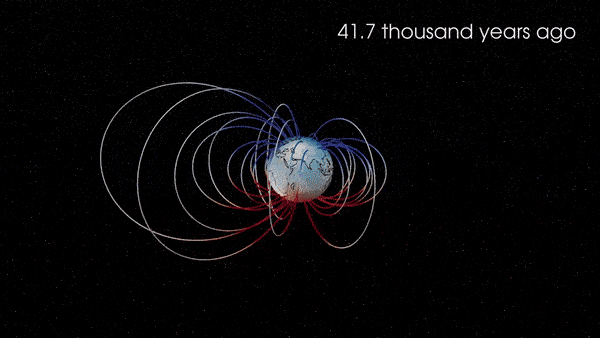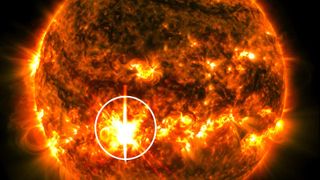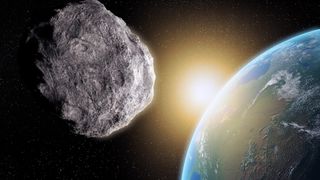earth
Latest about earth

Listen to haunting sounds of Earth's magnetic field flipping 41,000 years ago in eerie new animation
By Harry Baker published
A new video shows how Earth's magnetic field weakened and warped before temporarily flipping during a recent "polar reversal event."

Rare illusion gives 'once-in-a-lifetime' comet a seemingly impossible 2nd tail after closest approach to Earth for 80,000 years
By Harry Baker published
New photos of comet Tsuchinshan-ATLAS appear to show a faint "anti-tail" pointing away in the wrong direction. The puzzling extra limb is the result of a rare illusion that is only possible when our planet is in a certain position.

Monster X-class flare launches massive solar storm towards Earth — and could trigger auroras this weekend
By Harry Baker published
The sun just unleashed one of its largest solar explosions in recent years, temporarily causing a radio blackout on Earth and spitting out a coronal mass ejection that will likely collide with our planet this weekend.

Astronomers spot a possible 'future Earth' — 8 billion years into its future
By Ben Turner published
The rocky planet, roughly twice Earth's size, has offered astronomers a glimpse of one of Earth’s possible futures — if it doesn’t get engulfed by our expanding sun.

ESA's JUICE spacecraft confirmed Earth is habitable. Here's why
By Stefanie Waldek published
JUICE successfully identified water and the building blocks of life in Earth's atmosphere. In doing so, the probe headed for Jupiter's moons confirmed that its instruments are working properly.

Earth once wore a Saturn-like ring, study of ancient craters suggests
By Ben Turner published
The ring could be responsible for a prolonged drop in temperatures millions of years ago.

Earth's new 'mini-moon' will orbit our planet for the next 2 months
By Ben Turner published
A tiny asteroid will orbit around our planet for 53 days from the end of September.

Fall equinox 2024: When it is, why it happens and what to look for
By Jamie Carter published
On Sunday, Sept. 22, day and night will be nearly equal in length as Earth spins side-on to the sun and autumn officially begins in the Northern Hemisphere.
Get the world’s most fascinating discoveries delivered straight to your inbox.




